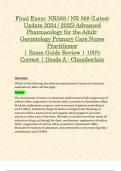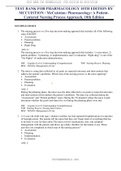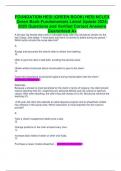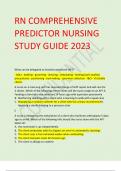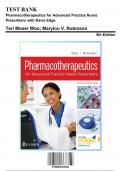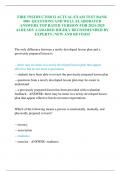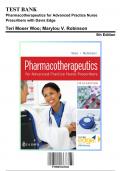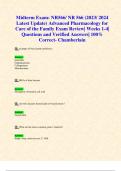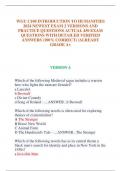Exam (elaborations)
Final Exam: NR568 / NR 568 (Latest Update 2024 / 2025) Advanced Pharmacology for the Adult-Gerontology Primary Care Nurse Practitioner | Exam Guide Review | 100% Correct | Grade A - Chamberlain
- Course
- NR 568 (NR568)
- Institution
- Chamberlain College Of Nursing
Final Exam: NR568 / NR 568 (Latest Update 2024 / 2025) Advanced Pharmacology for the Adult-Gerontology Primary Care Nurse Practitioner | Exam Guide Review | 100% Correct | Grade A - Chamberlain Question: Which of the following describes the mechanisms of action of antiseizure medications?...
[Show more]
